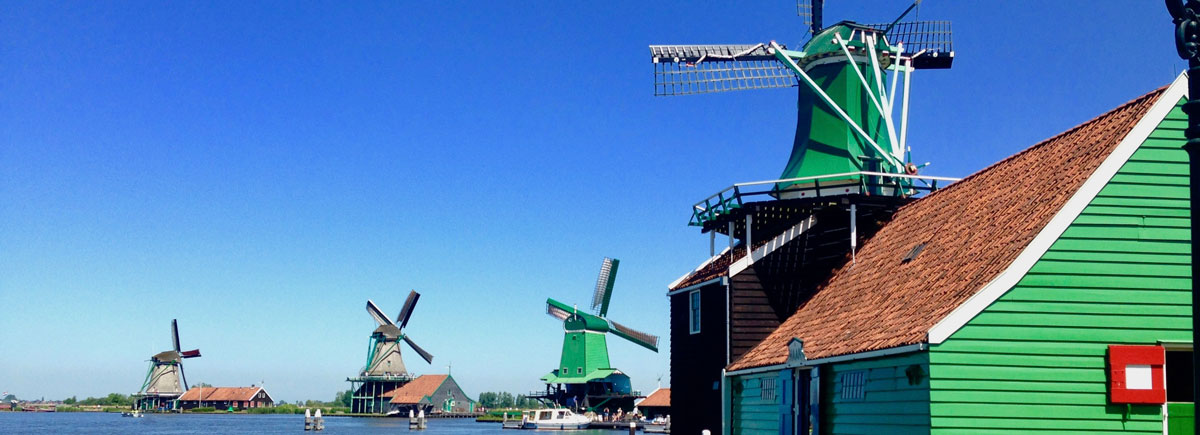Last week B and I visited one of our favorite places in the Netherlands, Apenheul in Apeldoorn. Apenheul, which means ‘monkey haven’ in Dutch, is a revolutionary, cage-free private zoo with over 70 species of animals, 35 of them primates, with 200 monkeys roaming freely throughout the park grounds.
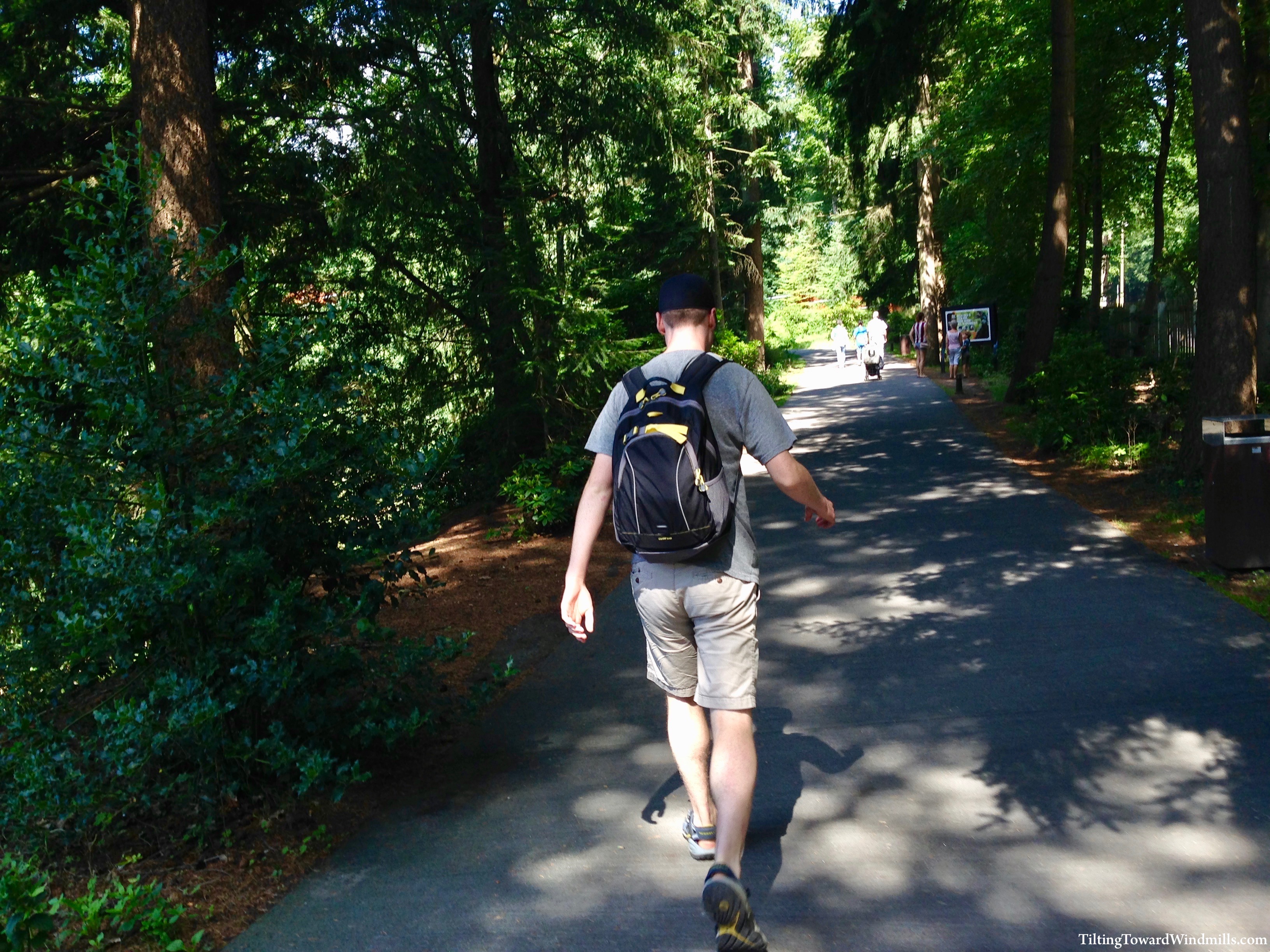
Just past the park entrance, the residents assess visitors and sometimes work their way through the crowd.
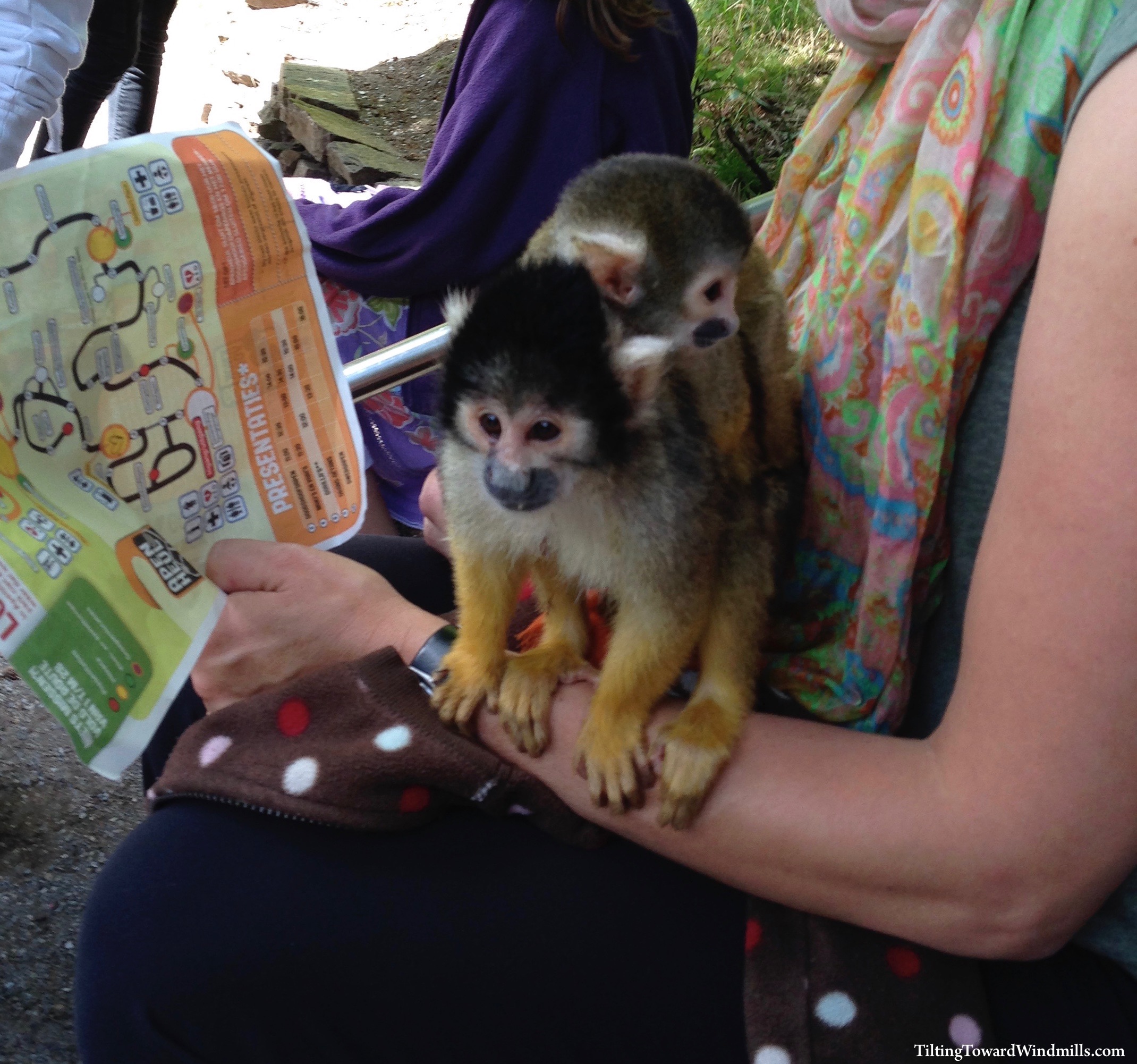
As B and I sat in one of the food court areas of the park, we suddenly heard a loud rustle and felt a woosh of air. A macaw had flown directly overhead and landed in the tree right beside us.
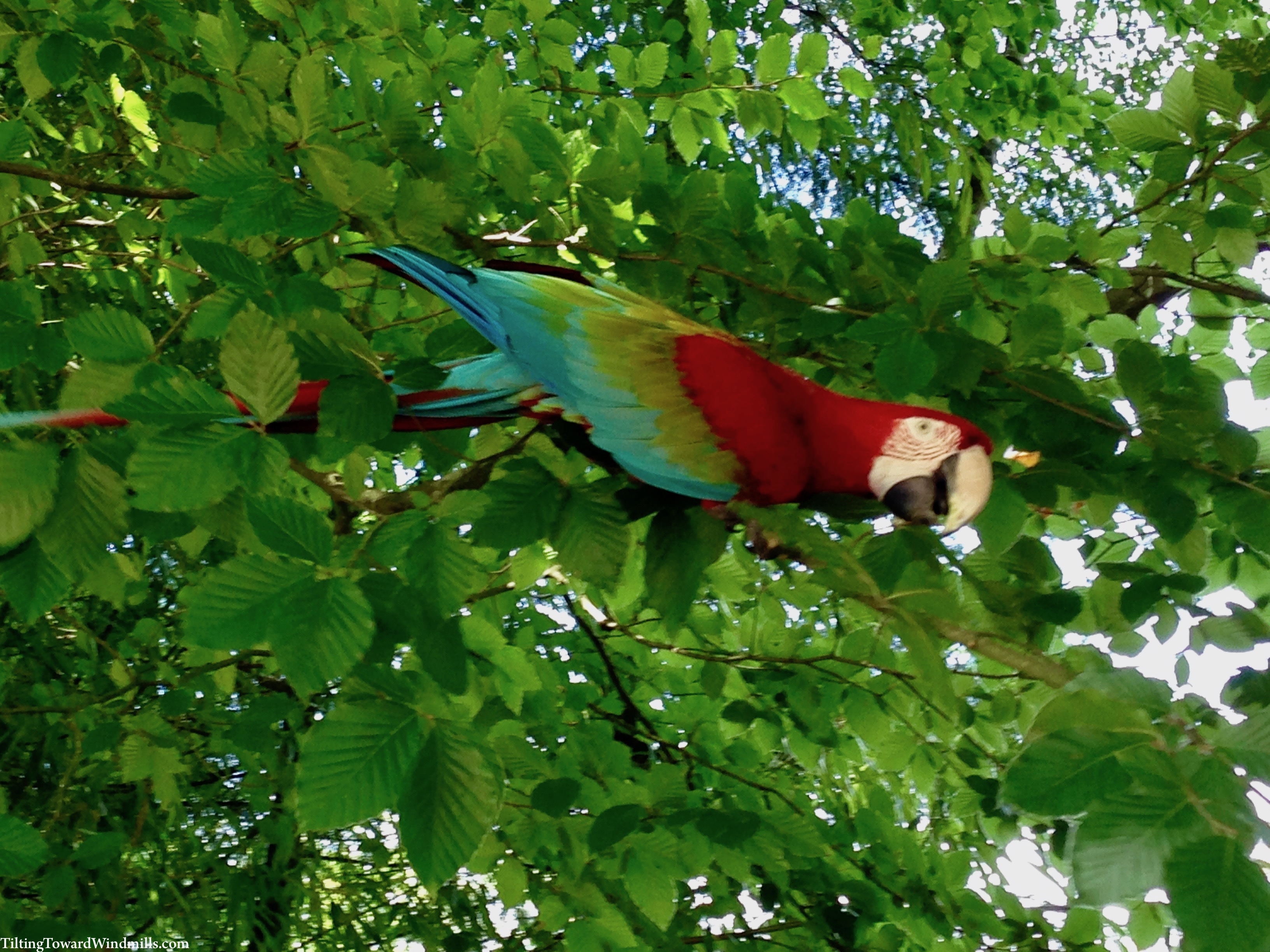
I was concerned that the macaw had somehow escaped, but then another one followed. I asked a park attendant who said that they are allowed to fly free. The pair often end up in nearby neighborhoods and even in the Apeldoorn city center, but they’ve never failed to return home at night. I suppose that is a strong testimonial to how happy the birds are at Apenheul and to the high level of trust shared by the trainer, the local community and these wonderful birds.
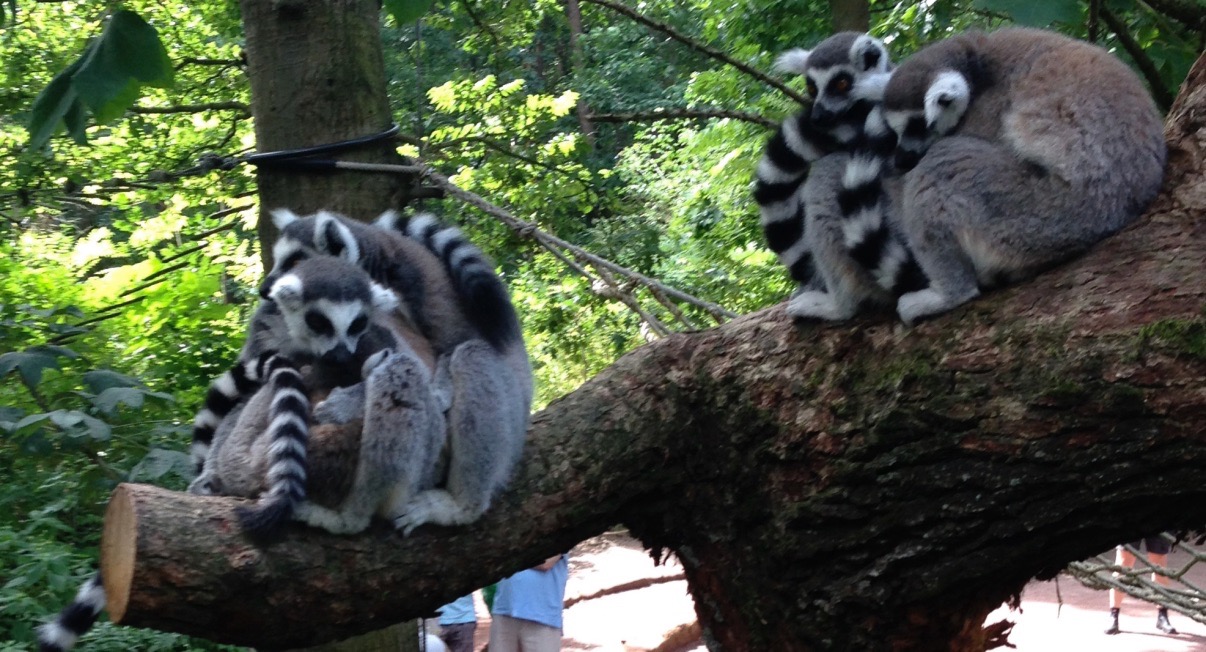
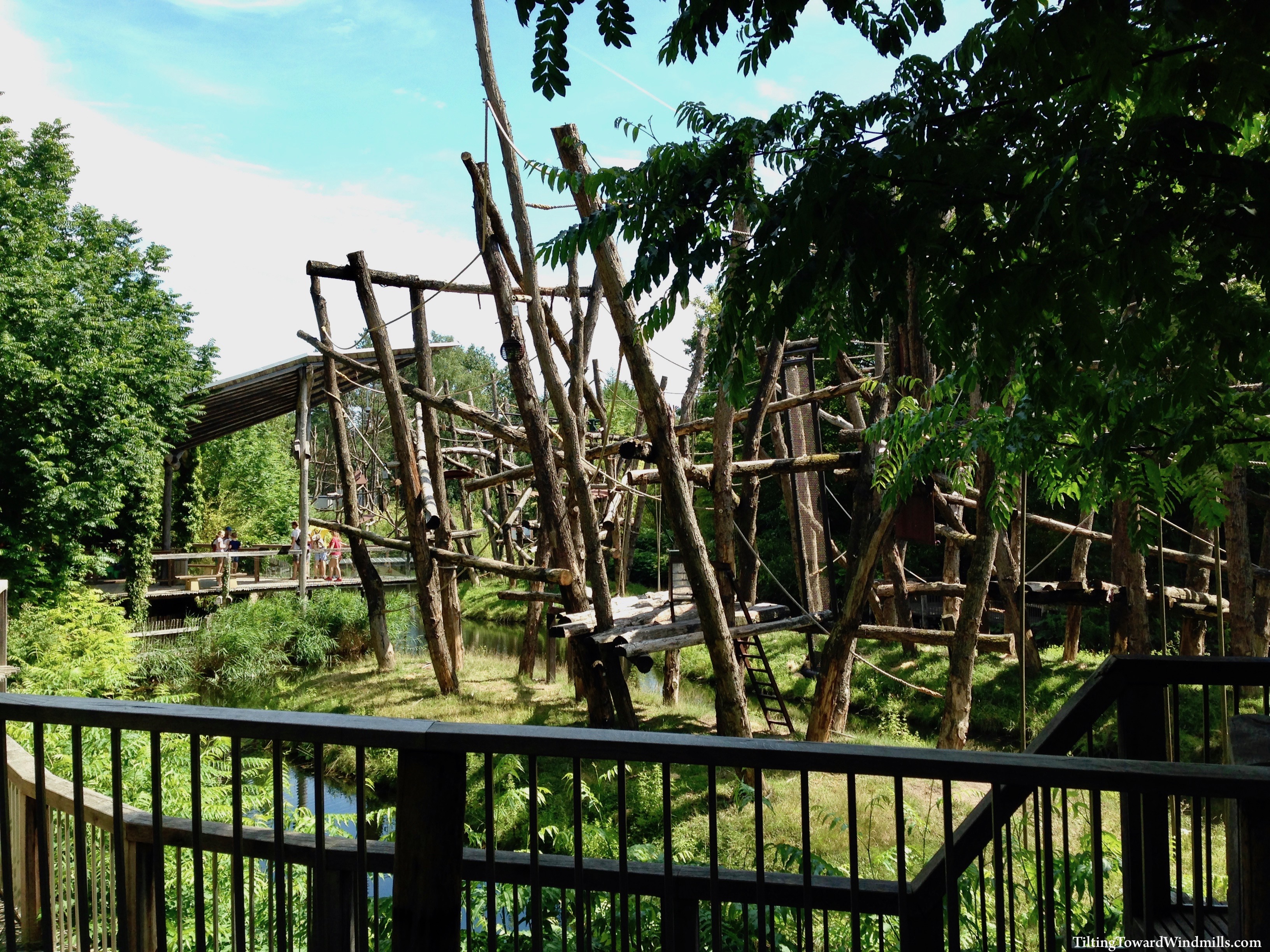
My favorite residents at Apenheul are the orangutans. One male orangutan, Kevin, often sits as close as possible to his glass enclosure in order to get the best possible view of visitors.
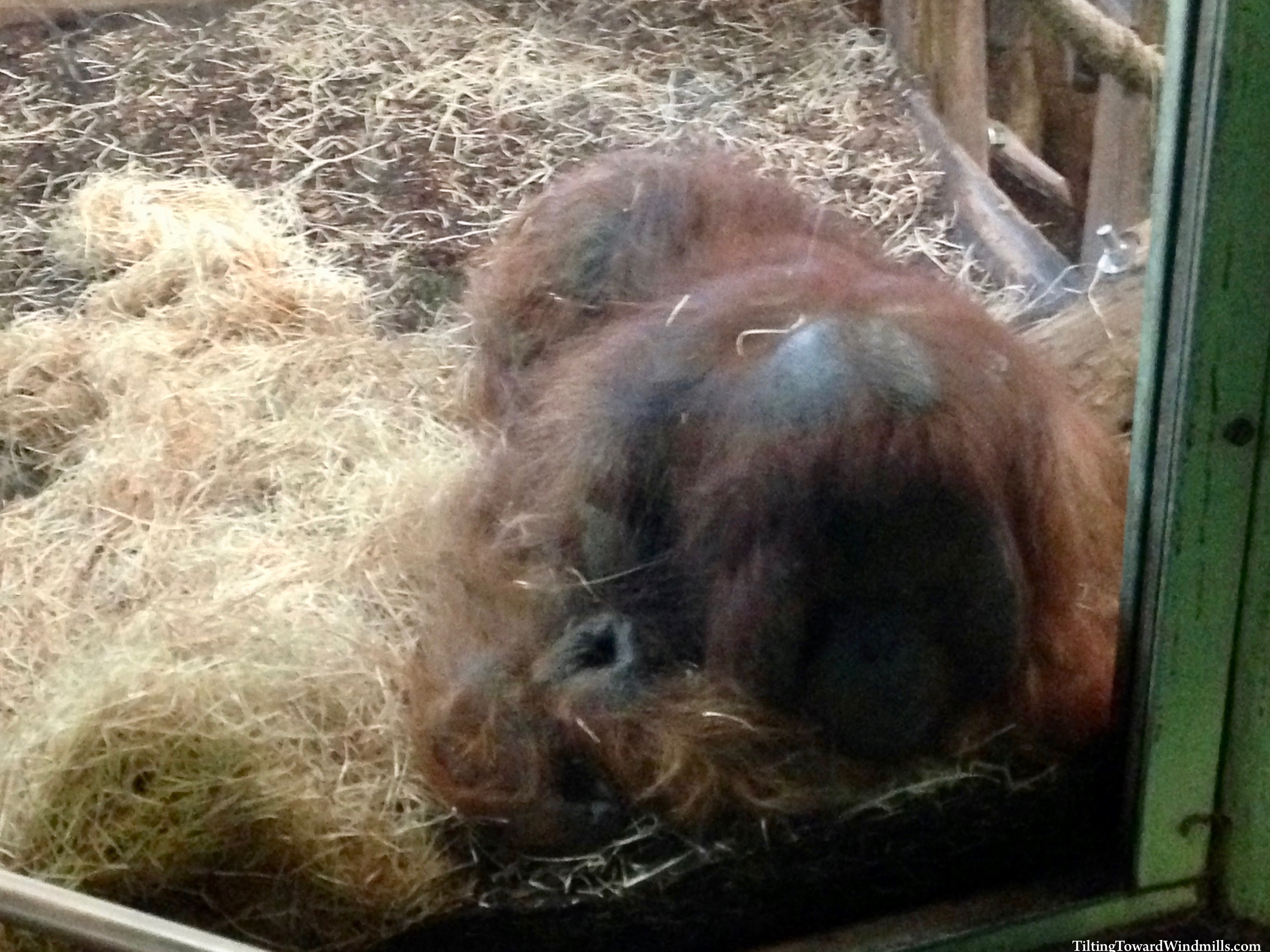
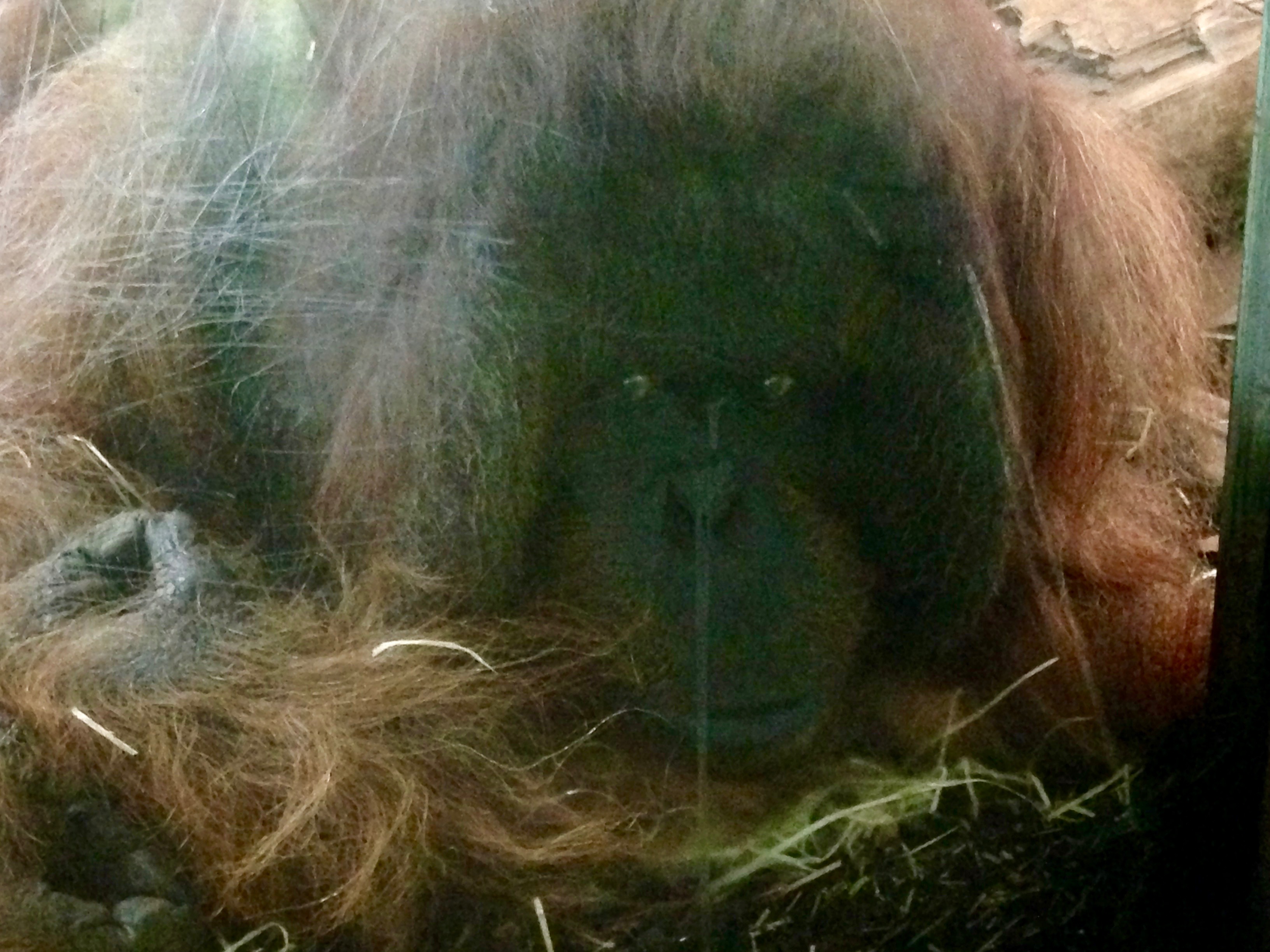
The best feature of Apenheul is how close one can get to the animals. The photos above and below were taken without zoom.
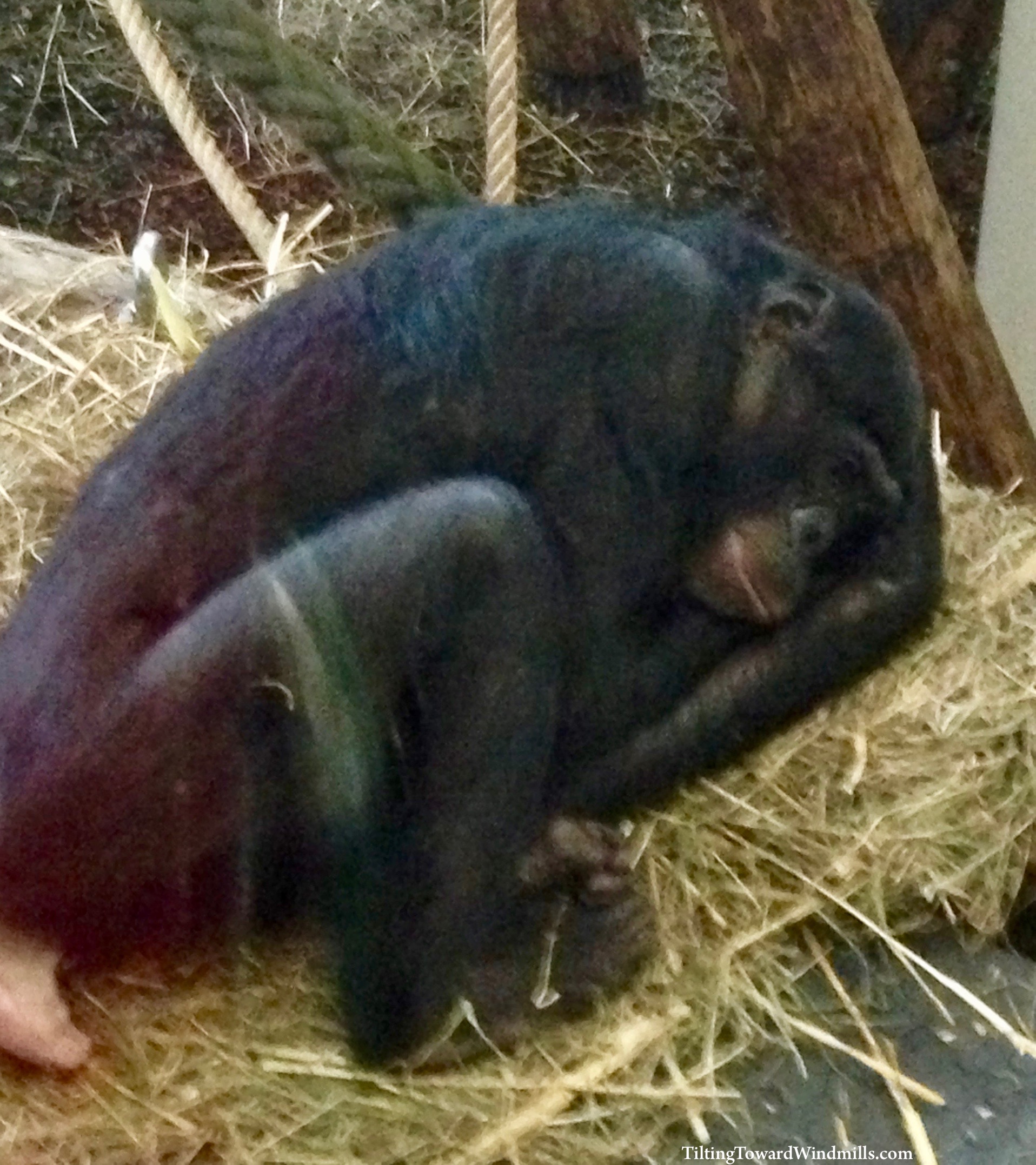
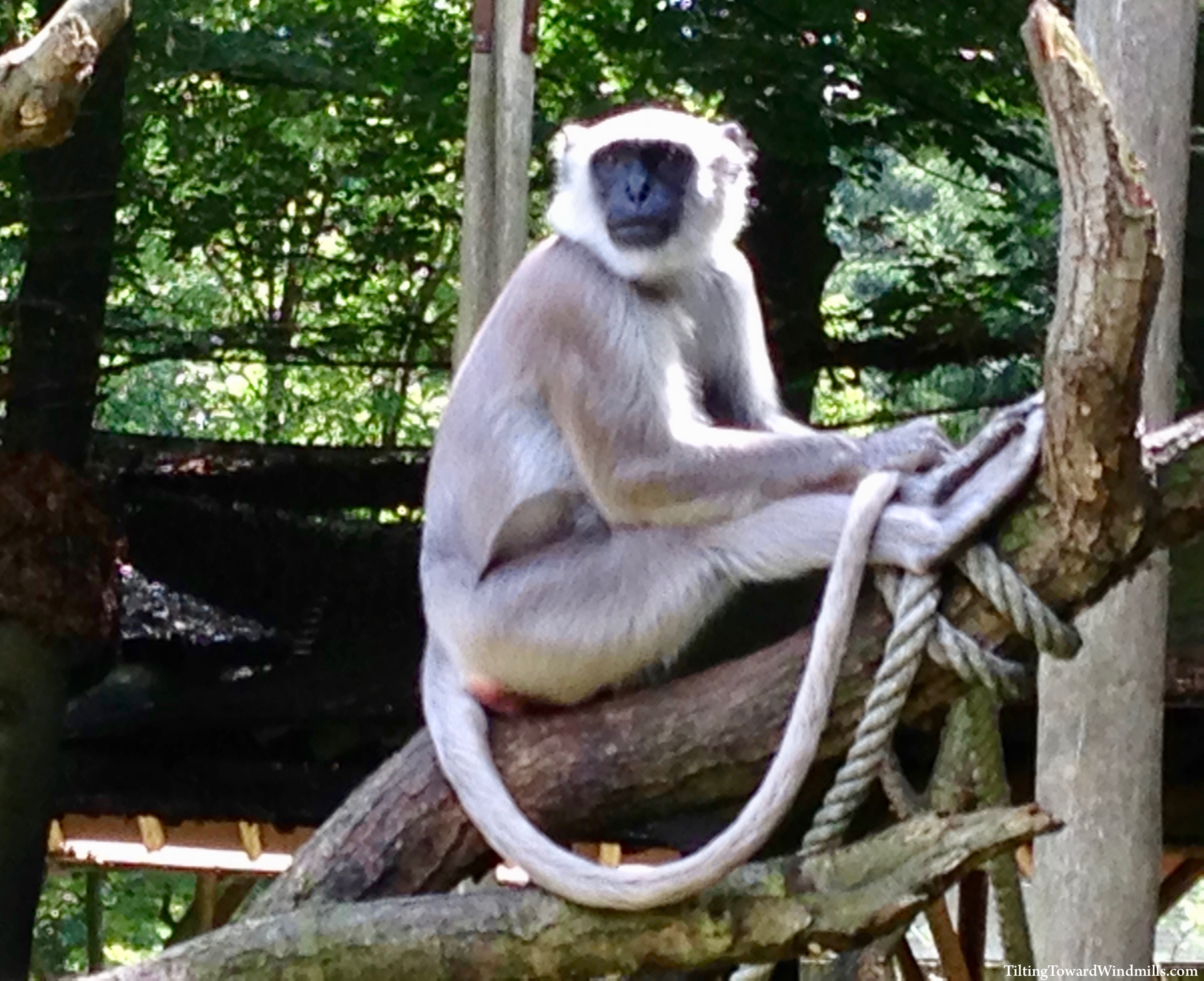
Right after the above photo was taken, this monkey heard a call from a monkey in another area of the park and sprinted across a group of people to climb up the top of a net to peer over the enclosure. This excited the children, but not as much as the parents who were determined to keep their children out of the monkey’s path.
I’m typically not a huge fan of zoos. Overcrowded conditions, cages and odors usually mean less than optimal living conditions for the animals. In contrast, Apenheul seems to be filled with very happy animals living on meticulously maintained, spacious islands and indoor sheltered areas. I just might spring for a €39 season pass (€25 for those with disabilities) so we can visit more often.
